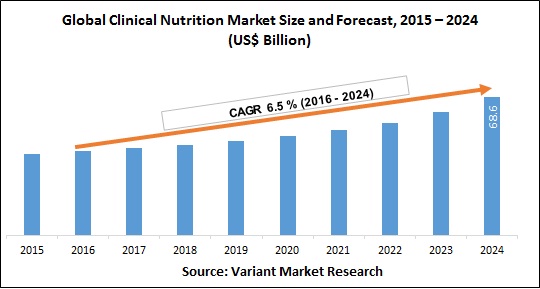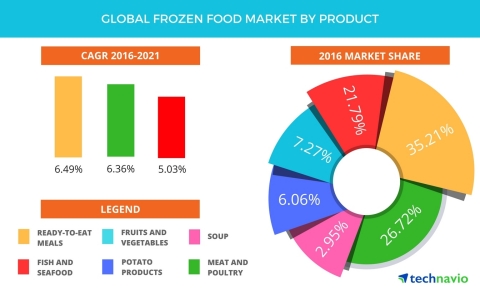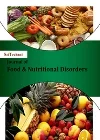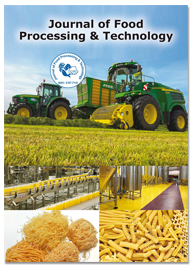Theme: Analysing the Interrelationships of Food, Nutrition and Human Wellbeing
Food & Nutrition 2020
Welcome to the official website of the 25th WorldConference on Food and Nutrition Science. Food and Nutrition 2020 Webinar will be held during September 29-30, 2020 across the theme “Analysing the Interrelationships of Food, Nutrition and Human Wellbeing”. It is to bring together innovative academics and industrial experts in the field of Food and Nutrition Science to a common forum.
We invite you to join us at Food and Nutrition Science Webinar, where you will be sure to have a meaningful experience with scholars from around the world. Generous response and active participation from the Editorial Board Members of conference related Journals as well as from the scientists, researchers and leaders in the field of Food & Nutrition Science will make this conference as one of the most successful and productive events in 2020.
The 25th World Conference on Food and Nutrition Science attendees include leaders in the field, as well as emerging scholars, who travel to the conference from all corners of the globe and represent a broad range of disciplines and perspectives. A variety of presentation options and session types offer opportunities for attendees to share their work, discuss key issues in the field, and build relationships with attendees. Digital and social media provide the perfect platform and exposure that the latest scientific developments in the field of food and nutrition science, spreading the knowledge from one corner to the other all over the world, engaging every small or big audience, giving a chance to interact and engage and giving scope for applications of these innovations in improving global health.
It is an honor for us to welcome honorable guests, nutritionists, nourishment scientists, food scientists, technologists, Chemists, Food Industrialists, professionals and business owners from various parts of the world to attend the 25th World Conference on Food and Nutrition Science to be held during September 29-30, 2020. This conference is planned to share the information on scientific developments and innovations in the various disciplines of Food and Nutrition Science.
The Food and Nutrition Conference offers a great platform and great opportunity to participate in a dynamic and international platform to share your knowledge and take part in scientific discussions on Food, Nutrition, Health and Lifestyle. The conference offers plenty of networking opportunities, providing you with the prospect to meet and interact with researchers, academicians, Nutrition experts, Dieticians and societies, industry experts and government officials.
Food and Nutrition Science Conference includes prompt keynote presentations, oral talks, poster presentations, delegate views, board talks, workshop and exhibitions. Join us for two intensive and interesting days of discussing contemporary challenges and new advancements in food science and nutritional research. We invite you to contribute and help to shape the event through submissions of your research abstracts, papers and e-posters. Also, high quality research contributions describing original and unpublished results of conceptual, constructive, empirical, experimental, or theoretical work in all areas of Food Science and Nutritional research are cordially invited for presentation at the conference.
Salient Features:
- Well-structured workshops, events and symposia
- Renowned speakers and scientists across the globe
- Poster presentations and world class exhibits
- Panel discussions & interactive sessions
- Perfect platform for global networking
- B2B meetings
- Alliances and associations
- Collaborative Research opportunities
Target Audience:
- Food technologist
- Microbiologist
- Food safety officers
- Nutritionists
- Public Health professionals
- Dietician
- Quality control officers
- Quality assurance officers
- Scientists
- Product Recall and Development Specialists
- Researchers
- Biotechnologists
- Industrialists
- Food Engineers
Participation Benefits:
- Accepted abstracts will be published in the respective International supporting Journals
- Each abstract will receive a (DOI) Number provided by Cross-Ref
- All attendees will receive individual certification
- Access to all sessions
- Special privileges on group registrations
- Best Poster Award
- Avail the opportunity to organize pre-conference/conference workshop
- Symposiums on latest research
- Handbook and conference kit
- 60% discount on manuscript publication
Major Associations and Societies Worldwide:
- World Health Organization
- International Food & Agribusiness Management Association
- Korean Society of Food Science & Technology
- American Association of Nutritional Consultants
- American Nutrition Association
- Association Coordination & Research in Obesity & Nutrition
- British Association of Nutritional Therapists
- Commonwealth Association Paediatric Gastroenterology & Nutrition
- European Association Gastroenterology, Endoscopy & Nutrition
- European Society Clinical Nutrition & Metabolism
- European Society Paediatric Gastroenterology, Hepatology & Nutrition
- Federation African Nutrition Societies
- International Society for Behavioural Nutrition and Physical Activity
- Association of Zoonotic Food borne Pathogens
- International Association of Engineering & Food
- International Association for Food Protection
- Federal Ministry of Food, Agriculture and Consumer Protection
- ISEKI Food Association
- Belgian Association of Food Technology
- Food Corporation of India
- Food Safety and Standards Authority of India
- Central Food Research Institute
- Federation of Asian Nutrition Societies
- Asia Pacific Clinical Nutrition Society
- Asian Federation Dietetics Associations
- Asia Pacific Infant and Young Child Nutrition Association
- Indonesian Dietetic Association
- Parenteral and Enteral Nutrition Society of Asia
Major Associations and Societies in Japan:
- Japan Society of Nutrition and Food Science
- Japan Dietetic Association
- Japanese Society of Nutrition and Dietetics
- Nutrition Japan Public Private Platform
- Japanese Academic Societies – UMIN
- National Institute of Health and Nutrition
- ESPEN National Societies
Session 01: Food Process Engineering
Food Process engineering has become a significant branch of applied engineering. Since post-harvest processing is gaining impetus in our country, concepts of basic food structures and their processing are essential. Enormity of foods with their diverse as well as specific unique characteristics demands special processing treatments. Simultaneously being biological commodities, their preparing needs to meet the safety requirements as well. Drying and Food freezing being the most well-known method followed for food preservation.
Recommend Conferences: Food Technology Conferences | Food Processing Conferences | Food Science Conference | Food Engineering Conferences | Food Packaging Conferences | Food Safety Conferences | Food and Beverages Conferences | Food Biotechnology Conferences | Food Chemistry Conferences | Food Security Conferences | Mal Nutrition Conferences | Nutrition Conferences | International Food Conferences | Food Conferences 2020 USA | Food Conferences 2020 Asia | Food Conferences 2020 Europe | Food Microbiology Conferences
Session 02: Food, Nutrition and Public Health
Food and nutrition are closely related to health. Both food and nutrition are matters of Public Health. In fact, one of the primary public health concerns includes access to minimal, essential, nutritionally adequate and safe food for everyone. Public health nutrition is the use of nutrition and public health principles to design programs, systems, policies and environments that intends to improve or keep up the optimal health of populations and targeted groups.
Recommend Conferences: Food Technology Conferences | Food Processing Conferences | Food Science Conference | Food Engineering Conferences | Food Packaging Conferences | Food Safety Conferences | Food and Beverages Conferences | Food Biotechnology Conferences | Food Chemistry Conferences | Food Security Conferences | Mal Nutrition Conferences | Nutrition Conferences | International Food Conferences | Food Conferences 2020 USA | Food Conferences 2020 Asia | Food Conferences 2020 Europe | Food Microbiology Conferences
Session 03: Food Chemistry
Food Chemistry is the study of chemical processes and interactions of all biological and non-biological components of foods. Examples of biological substances are meat, poultry, lettuce, beer, and milk. It is similar to biochemistry in its main components such as carbohydrates, lipids, and protein, but it also includes areas such as water, vitamins, minerals, enzymes, food additives, flavours, and colours. This discipline also includes how products get modified under certain food processing techniques and methods either to enhance or to prevent them from happening.
Recommend Conferences: Food Technology Conferences | Food Processing Conferences | Food Science Conference | Food Engineering Conferences | Food Packaging Conferences | Food Safety Conferences | Food and Beverages Conferences | Food Biotechnology Conferences | Food Chemistry Conferences | Food Security Conferences | Mal Nutrition Conferences | Nutrition Conferences | International Food Conferences | Food Conferences 2020 USA | Food Conferences 2020 Asia | Food Conferences 2020 Europe | Food Microbiology Conferences
Session 04: Sports nutrition & Kinesiology
Sports nutrition is a rapidly growing field of study that combines knowledge of exercise science and human nutrition. It integrates the nutritional components of wellness programming and key elements of nutrition for optimal performance. It also represents the biological synergy between nutrition and exercise physiology so that students can take leadership roles in clinical-based wellness programs, exercise physiological and nutritional research, as well as tailoring the optimal, evidence-based nutritional practices for coaches and athletes.
Recommend Conferences: Food Technology Conferences | Food Processing Conferences | Food Science Conference | Food Engineering Conferences | Food Packaging Conferences | Food Safety Conferences | Food and Beverages Conferences | Food Biotechnology Conferences | Food Chemistry Conferences | Food Security Conferences | Mal Nutrition Conferences | Nutrition Conferences | International Food Conferences | Food Conferences 2020 USA | Food Conferences 2020 Asia | Food Conferences 2020 Europe | Food Microbiology Conferences
Session 05: Animal Nutrition
Animal nutrition involves the study of the composition and qualities of the material consumed by the animal, the way wherein this material is metabolised (changed over, used, and discharged) in the digestive tract and body cells of monogastric animals (pigs, broilers, layers), ruminants (sheep, cattle, goats), and lower digestive tract fermenters (horses, ostriches). The nutrient prerequisites of various species animals for generation production functions are also addressed. At long last, this information is incorporated in an economically feasible and practical arrangement of animal nutrition to guarantee that the optimal genetic production potential of animals is accomplished.
Recommend Conferences: Food Technology Conferences | Food Processing Conferences | Food Science Conference | Food Engineering Conferences | Food Packaging Conferences | Food Safety Conferences | Food and Beverages Conferences | Food Biotechnology Conferences | Food Chemistry Conferences | Food Security Conferences | Mal Nutrition Conferences | Nutrition Conferences | International Food Conferences | Food Conferences 2020 USA | Food Conferences 2020 Asia | Food Conferences 2020 Europe | Food Microbiology Conferences
Session 06: Nutritional Therapy and Treatments
Nutritional Therapy utilizes food to prevent and reverse maladies that plague most western societies: diabetes, obesity, coronary illness, joint pain, and depression. With the goal for nourishment to be remedial, it must be nutrient-dense, estimated to a limited extent by the nutrients and anti-nutrients, contained in expended food sources. Nutritional Therapy is also concerned with the way that foods are prepared and delivered for consumption. It incorporates checking an individual's nutrition status, and giving the correct food sources or nutrients to treat conditions, for example those caused by diabetes, heart disease, and cancer.
Recommend Conferences: Food Technology Conferences | Food Processing Conferences | Food Science Conference | Food Engineering Conferences | Food Packaging Conferences | Food Safety Conferences | Food and Beverages Conferences | Food Biotechnology Conferences | Food Chemistry Conferences | Food Security Conferences | Mal Nutrition Conferences | Nutrition Conferences | International Food Conferences | Food Conferences 2020 USA | Food Conferences 2020 Asia | Food Conferences 2020 Europe | Food Microbiology Conferences
Session 07: Nutrients and Dietary supplements
Nutritional supplements are dietary supplement that is planned to give nutrients that may otherwise not be consumed in adequate amounts; for example, vitamins, minerals, proteins, amino acids or other nutritional substances. Dietary supplements are substances you may use to add nutrients to your eating regimen or to bring down your danger of medical issues, similar to osteoporosis or joint inflammation. Dietary supplements come in the form of pills, capsules, powders, gel tabs, concentrates, or liquids.
Recommend Conferences: Food Technology Conferences | Food Processing Conferences | Food Science Conference | Food Engineering Conferences | Food Packaging Conferences | Food Safety Conferences | Food and Beverages Conferences | Food Biotechnology Conferences | Food Chemistry Conferences | Food Security Conferences | Mal Nutrition Conferences | Nutrition Conferences | International Food Conferences | Food Conferences 2020 USA | Food Conferences 2020 Asia | Food Conferences 2020 Europe | Food Microbiology Conferences
Session 08: Clinical Nutrition
Clinical nutrition is the act of investigating if an individual is consuming a sufficient measure of supplements for good wellbeing. A clinical nutritionist is concerned with how supplements in food are processed, stored and disposed of by your body, alongside how what you eat influences your overall well-being. Experts in this field evaluate your nutritional needs dependent on your family and medical history, lifestyle and laboratory tests so as to make proposals on your eating routine and individual dietary needs.
Recommend Conferences: Food Technology Conferences | Food Processing Conferences | Food Science Conference | Food Engineering Conferences | Food Packaging Conferences | Food Safety Conferences | Food and Beverages Conferences | Food Biotechnology Conferences | Food Chemistry Conferences | Food Security Conferences | Mal Nutrition Conferences | Nutrition Conferences | International Food Conferences | Food Conferences 2020 USA | Food Conferences 2020 Asia | Food Conferences 2020 Europe | Food Microbiology Conferences
Session 09: Food Quality, Safety and Regulations
Food safety and quality are significant at the home level, however are basic in huge scale food production, processing and handling, and furthermore where nourishment is newly prepared and served. Before, numerous foods were prepared at home. Progression in innovation and preparing, larger per capital earnings and better acquiring force just as expanded buyer request have prompted an assortment of results of handled nourishments, nourishment for wellbeing/useful food sources being fabricated. Wellbeing of such nourishments should be evaluated. Food quality and safety are the principle focuses of investigation in food production. Therefore, solid ways to distinguish, recognize, measure, characterize and screen quality and safety issues happening in nourishment are of incredible intrigue.
Recommend Conferences: Food Technology Conferences | Food Processing Conferences | Food Science Conference | Food Engineering Conferences | Food Packaging Conferences | Food Safety Conferences | Food and Beverages Conferences | Food Biotechnology Conferences | Food Chemistry Conferences | Food Security Conferences | Mal Nutrition Conferences | Nutrition Conferences | International Food Conferences | Food Conferences 2020 USA | Food Conferences 2020 Asia | Food Conferences 2020 Europe | Food Microbiology Conferences
Session 10: Food Biotechnology and Fermentation
Food biotechnology is the use of current biotechnological methods to the production and processing of food. Fermentation of food, which is the most seasoned biotechnological process, and food additives, just as plant and animal cell cultures, are incorporated. New improvements in fermentation and enzyme technological processes, genetic engineering, protein building, bioengineering, and procedures involving monoclonal antibodies have acquainted energizing measurements with food biotechnology. Although traditional agriculture and crop breeding are not by and large viewed as food biotechnology, agricultural biotechnology, i.e., of animal and plant foods, is relied upon to become an increasingly important “motor” of development for the agri-food industry.
Recommend Conferences: Food Technology Conferences | Food Processing Conferences | Food Science Conference | Food Engineering Conferences | Food Packaging Conferences | Food Safety Conferences | Food and Beverages Conferences | Food Biotechnology Conferences | Food Chemistry Conferences | Food Security Conferences | Mal Nutrition Conferences | Nutrition Conferences | International Food Conferences | Food Conferences 2020 USA | Food Conferences 2020 Asia | Food Conferences 2020 Europe | Food Microbiology Conferences
Session 11: Pediatric Nutrition
Large numbers of children in both wealthy and poverty-stricken regions suffer malnutrition: the malnutrition of excess amounts of inappropriate foods and the malnutrition of insufficient nutritious foods. Adequate nutrition for adolescent girls and pregnant and lactating mothers is also important for child nutrition. Pediatric nutrition considers the dietary needs of infants to support growth and development, including changes in organ function and body composition.
Recommend Conferences: Food Technology Conferences | Food Processing Conferences | Food Science Conference | Food Engineering Conferences | Food Packaging Conferences | Food Safety Conferences | Food and Beverages Conferences | Food Biotechnology Conferences | Food Chemistry Conferences | Food Security Conferences | Mal Nutrition Conferences | Nutrition Conferences | International Food Conferences | Food Conferences 2020 USA | Food Conferences 2020 Asia | Food Conferences 2020 Europe | Food Microbiology Conferences
Session 12: Nutrigenetics, Nutrigenomics, Epigenetics& Pharmacogenetics
Nutrigenetics and nutrigenomics hold a lot of guarantee for giving better nourishing counsel to the public generally, genetic subgroups and individuals. Since nutrigenetics and nutrigenomics require a profound comprehension of nutrition, genetics and biochemistry and ever new ‘omic’ advances, it is often difficult in any event, for taught experts, to value their importance to the act of preventive methodologies for enhancing wellbeing, postponing beginning of infection and lessening its seriousness.
Recommend Conferences: Food Technology Conferences | Food Processing Conferences | Food Science Conference | Food Engineering Conferences | Food Packaging Conferences | Food Safety Conferences | Food and Beverages Conferences | Food Biotechnology Conferences | Food Chemistry Conferences | Food Security Conferences | Mal Nutrition Conferences | Nutrition Conferences | International Food Conferences | Food Conferences 2020 USA | Food Conferences 2020 Asia | Food Conferences 2020 Europe | Food Microbiology Conferences
Session 13: Diet and the Gut Microbiome
The food we eat plays an essential role in maintaining the diversity and proper functioning of our gut microbiota. Prebiotics and probiotics are two of the most widely studied elements in the field of gut microbiota. Both have effects that are considered beneficial for the gut microbiota which impacts various functions of the body such as the digestive condition, for this reason, specialists highlight the importance of including both of them in our diet, in order to promote a healthy microbiota.
Recommend Conferences: Food Technology Conferences | Food Processing Conferences | Food Science Conference | Food Engineering Conferences | Food Packaging Conferences | Food Safety Conferences | Food and Beverages Conferences | Food Biotechnology Conferences | Food Chemistry Conferences | Food Security Conferences | Mal Nutrition Conferences | Nutrition Conferences | International Food Conferences | Food Conferences 2020 USA | Food Conferences 2020 Asia | Food Conferences 2020 Europe | Food Microbiology Conferences
Session 14: Emerging Food Technologies and Concepts
Emerging Technologies for Food Processing presents a comprehensive review of innovations in food processing, stresses topics vital to the food industry today, and pinpoints the trends in future research and development. Concept include latest advances in non-thermal processing, alternative technologies and strategies for thermal processing, the latest developments in food refrigeration, and current topics in minimal processing of vegetables, fruits, juices and cook-chill ready meals and modified atmosphere packaging for minimally processed foods.
Recommend Conferences: Food Technology Conferences | Food Processing Conferences | Food Science Conference | Food Engineering Conferences | Food Packaging Conferences | Food Safety Conferences | Food and Beverages Conferences | Food Biotechnology Conferences | Food Chemistry Conferences | Food Security Conferences | Mal Nutrition Conferences | Nutrition Conferences | International Food Conferences | Food Conferences 2020 USA | Food Conferences 2020 Asia | Food Conferences 2020 Europe | Food Microbiology Conferences
Session 15: Food Nanotechnology
Food nanotechnology is a region of rising interest and opens up an entire universe of new potential outcomes for the food business. The fundamental classes of nanotechnology applications and functionalities right now in the advancement of food packaging include: the improvement of plastic materials barriers, the joining of dynamic segments that can convey useful properties past those of conventional active packaging, and the detecting and signaling of significant data. Nano food packaging materials may expand food life, improve sanitation, ready purchasers that food is contaminated or spoiled, repair tears in packaging, and even release preservatives broaden the life of the food in the package.
Recommend Conferences: Food Technology Conferences | Food Processing Conferences | Food Science Conference | Food Engineering Conferences | Food Packaging Conferences | Food Safety Conferences | Food and Beverages Conferences | Food Biotechnology Conferences | Food Chemistry Conferences | Food Security Conferences | Mal Nutrition Conferences | Nutrition Conferences | International Food Conferences | Food Conferences 2020 USA | Food Conferences 2020 Asia | Food Conferences 2020 Europe | Food Microbiology Conferences
Session 16: Food Marketing and Economics; Novel Concepts and Challenges
Food marketing policies need to be considered as a feature of a more extensive improvement system that can influence food security and poverty alleviation. The food economics targets controlling, organizing and advancing exploration activities about the economy of the agro-food sector. The food marketing system is evolving quickly, particularly as present day supply chains evolve to provision supermarkets and as worries for sanitation and origin are reflected in the buying choices of progressively prosperous consumers. Modern supply chains and supermarkets change the idea of farm market consumer communications.
Recommend Conferences: Food Technology Conferences | Food Processing Conferences | Food Science Conference | Food Engineering Conferences | Food Packaging Conferences | Food Safety Conferences | Food and Beverages Conferences | Food Biotechnology Conferences | Food Chemistry Conferences | Food Security Conferences | Mal Nutrition Conferences | Nutrition Conferences | International Food Conferences | Food Conferences 2020 USA | Food Conferences 2020 Asia | Food Conferences 2020 Europe | Food Microbiology Conferences
Session 17: Climate Change and Food Systems
The effects of worldwide climate change on food systems are relied upon to be boundless, complex, topographically and transiently factor, and significantly impacted by financial conditions. Historical statistical studies and integrated assessment models give proof that climate change will influence agricultural yields and income, food prices, reliability of delivery, food quality, and, remarkably, sanitation. Low-income producers and buyers of food will be more vulnerable to climate change inferable from their nearly constrained capacity to put resources into versatile technologies under increasing climatic dangers.
Recommend Conferences: Food Technology Conferences | Food Processing Conferences | Food Science Conference | Food Engineering Conferences | Food Packaging Conferences | Food Safety Conferences | Food and Beverages Conferences | Food Biotechnology Conferences | Food Chemistry Conferences | Food Security Conferences | Mal Nutrition Conferences | Nutrition Conferences | International Food Conferences | Food Conferences 2020 USA | Food Conferences 2020 Asia | Food Conferences 2020 Europe | Food Microbiology Conferences
Session 18: Food Borne Diseases and Remedies
Food- or water-borne illnesses are not spread from easygoing contact with someone else. An individual can come into contact with food- or water-borne bacteria by eating or drinking something that has bacteria in it. Food- and water-borne illnesses might be caused by toxins made by developing microbes; toxins produced by the unsafe algal species; or contamination of food and/or water specific microorganisms, infections or parasites. Numerous instances of food contamination happen when someone eats food that has harmful bacteria in it. The bacteria or the toxins produced by them can then make the person sick. Bacteria also can get into the water supply and make someone sick.
Recommend Conferences: Food Technology Conferences | Food Processing Conferences | Food Science Conference | Food Engineering Conferences | Food Packaging Conferences | Food Safety Conferences | Food and Beverages Conferences | Food Biotechnology Conferences | Food Chemistry Conferences | Food Security Conferences | Mal Nutrition Conferences | Nutrition Conferences | International Food Conferences | Food Conferences 2020 USA | Food Conferences 2020 Asia | Food Conferences 2020 Europe | Food Microbiology Conferences
Session 19: Food Waste Management
Food wastage and its accumulation are turning into a basic issue far and wide because of constant increment of the total populace. The exponential development in food waste is imposing serious threats to our general public like ecological pollution, health risk, and shortage of dumping land. There is an urgent need to take appropriate measures to reduce food waste burden by adopting standard management practices. Currently, various kinds of approaches are investigated in waste food processing and management for societal benefits and applications. Anaerobic digestion approach showed up as one of the most ecofriendly and promising solutions for food wastes management, energy, and nutrient production, which can add to world's consistently expanding energy requirements.
Recommend Conferences: Food Technology Conferences | Food Processing Conferences | Food Science Conference | Food Engineering Conferences | Food Packaging Conferences | Food Safety Conferences | Food and Beverages Conferences | Food Biotechnology Conferences | Food Chemistry Conferences | Food Security Conferences | Mal Nutrition Conferences | Nutrition Conferences | International Food Conferences | Food Conferences 2020 USA | Food Conferences 2020 Asia | Food Conferences 2020 Europe | Food Microbiology Conferences
Session 20: Novel Food Packaging
The packaging of a food is regularly comprehended to incorporate the packaging process as well as the materials used to fabricate the package or container. The novel food packaging techniques, viz. active packaging, intelligent packaging and bio active packaging which include deliberate interaction with the food or its environment and impact on customer's wellbeing have been the significant developments in the field of packaging technology. The advancement in novel food packaging technologies includes retardation in oxidation, hindered respiratory process, prevention of microbial attack, prevention of moisture infusion, use of CO2 scavengers/emitters, ethylene scavengers, aroma emitters, time-temperature sensors, ripeness indicators, biosensors and sustained release of antioxidants during storage.
Recommend Conferences: Food Technology Conferences | Food Processing Conferences | Food Science Conference | Food Engineering Conferences | Food Packaging Conferences | Food Safety Conferences | Food and Beverages Conferences | Food Biotechnology Conferences | Food Chemistry Conferences | Food Security Conferences | Mal Nutrition Conferences | Nutrition Conferences | International Food Conferences | Food Conferences 2020 USA | Food Conferences 2020 Asia | Food Conferences 2020 Europe | Food Microbiology Conferences
Session 21: Plant Nutrition and Nutraceuticals
Plant derived Nutraceuticals/functional foods have gotten impressive consideration as a result of their assumed safety and potential nutritional and therapeutic effects. Some well known phyto-nutraceuticals incorporate glucosamine from ginseng, Omega-3 fatty acids from linseed, Epigallocatechin gallate from green tea, lycopene form tomato etc. Majority of the nutraceuticals are professed to have various helpful advantages however significant proof is missing for the advantages just as undesirable impacts. With these patterns, improvement of the dietary nutritional values of fruits, vegetables and other crops or enhancement of the bioactive components in folk herbals have become the objectives of sprouting plant biotechnology industry. The present survey has been given towards better comprehension of the phyto-nutraceuticals from various therapeutic plants dependent on their infection explicit signs.
Recommend Conferences: Food Technology Conferences | Food Processing Conferences | Food Science Conference | Food Engineering Conferences | Food Packaging Conferences | Food Safety Conferences | Food and Beverages Conferences | Food Biotechnology Conferences | Food Chemistry Conferences | Food Security Conferences | Mal Nutrition Conferences | Nutrition Conferences | International Food Conferences | Food Conferences 2020 USA | Food Conferences 2020 Asia | Food Conferences 2020 Europe | Food Microbiology Conferences
Session 22: Food Insecurity, Malnutrition and Hunger
Hunger can refer to the discomfort, weakness, illness, or pain caused by a long haul absence of food. Keeping up great wellbeing, expending a nutritious eating regimen, managing an existing chronic disease, or a mix of these can be a test for those battling with poverty or food insecurity for an assortment of reasons, including constrained funds and assets, contending needs, and stress. In addition, those affected by poverty or food insecurity are likely experiencing additional resource-related hardships (e.g., housing instability, energy insecurity) that, in turn, can add to poor nutrition, health, and disease management.
Recommend Conferences: Food Technology Conferences | Food Processing Conferences | Food Science Conference | Food Engineering Conferences | Food Packaging Conferences | Food Safety Conferences | Food and Beverages Conferences | Food Biotechnology Conferences | Food Chemistry Conferences | Food Security Conferences | Mal Nutrition Conferences | Nutrition Conferences | International Food Conferences | Food Conferences 2020 USA | Food Conferences 2020 Asia | Food Conferences 2020 Europe | Food Microbiology Conferences
Session 23: Food Storage and Preservation
Food preservation can be characterized as the science that manages the procedure of anticipation of rot or deterioration of food subsequently, enabling it to be put away in a fit condition for some time later. Food preservation is indistinguishable from where the food is stored. The storage of food is done in a suitable environment. This regularly implies a dry, cool place. There are a few places wherein food can be stored. These incorporate food storage rooms as storeroom's (rooms in the house, near the kitchen) or separate food storage rooms (i.e. over the ground, earth bermed, or even underground (i.e. root cellars; store rooms, even mere burial is possible)).
Recommend Conferences: Food Technology Conferences | Food Processing Conferences | Food Science Conference | Food Engineering Conferences | Food Packaging Conferences | Food Safety Conferences | Food and Beverages Conferences | Food Biotechnology Conferences | Food Chemistry Conferences | Food Security Conferences | Mal Nutrition Conferences | Nutrition Conferences | International Food Conferences | Food Conferences 2020 USA | Food Conferences 2020 Asia | Food Conferences 2020 Europe | Food Microbiology Conferences
Session 24: Food Texture and Rheology
The flow of the bolus of chewed food in the mouth, and the flow of fluid and semifluid foods, is both a textural property and a rheological property. However, the fracturing and grinding of solid foods that occurs during mastication is not a rheological phenomenon, and neither are the textural perceptions of particles, or the release or absorption of moisture or oil. Novel rheological and sensorial analyses are working toward a better understanding of food structural breakdown, bolus development, and the associated properties and attributes of the food as it undergoes these changes. These analyses are uncovering some of the key unknown information about food behaviours during oral processing, allowing progression toward a universal set of rheological–sensory relationships.
Recommend Conferences: Food Technology Conferences | Food Processing Conferences | Food Science Conference | Food Engineering Conferences | Food Packaging Conferences | Food Safety Conferences | Food and Beverages Conferences | Food Biotechnology Conferences | Food Chemistry Conferences | Food Security Conferences | Mal Nutrition Conferences | Nutrition Conferences | International Food Conferences | Food Conferences 2020 USA | Food Conferences 2020 Asia | Food Conferences 2020 Europe | Food Microbiology Conferences
Session 25: Food Sensory and Flavors
Flavour is the sensory impression of a food or other substance, and is determined mainly by the chemical senses of taste and smell. Specific functions could include product matching, enhancement of ingredient specifications, shelf-life determinations and cost optimization. When detection, not identification, of differences is the goal, it involves less time and training. However, situations that require attribute-specific quantifiable data, such as target matching, demand a trained panel of product specialists. Every sensory panelist must be competent in using the sensory method, terminology, rating scales, and evaluation ballots or programs.
Recommend Conferences: Food Technology Conferences | Food Processing Conferences | Food Science Conference | Food Engineering Conferences | Food Packaging Conferences | Food Safety Conferences | Food and Beverages Conferences | Food Biotechnology Conferences | Food Chemistry Conferences | Food Security Conferences | Mal Nutrition Conferences | Nutrition Conferences | International Food Conferences | Food Conferences 2020 USA | Food Conferences 2020 Asia | Food Conferences 2020 Europe | Food Microbiology Conferences
Clinical Nutrition Market Overview:
Global Clinical Nutrition Market is estimated to reach $68.6 billion by 2024; growing at a CAGR of 6.5% from 2016 to 2024. Clinical nutrition is part of health care that provides treatment of medical illnesses produced due to inappropriate diet or caused due to the body failure to absorb nutrients presented in a normal diet. These clinical nutrition products comprise clinical foods & various dietary supplements which are mainly used in treatment of eating or nutritional disorders, metabolic disorders, and other conditions. These products are considered mainly as pharmaceuticals which are delivered over parenteral and feeding. Increasing geriatric population with loss of appetite, weak digestive systems, and chronic diseases mainly drives the clinical nutrition market.

Growing population of baby boomers, high birth rate & increasing number of premature births, growing number of sufferers of receiving malnutrition treatment, and increasing incidences of lifestyle related diseases are the factors driving the growth of the clinical nutrition market. Though, strict rules and lack of responsiveness about clinical nutrition may hinder the growth of the market. Moreover, increasing adoption of clinical nutrition might provide with several growth opportunities in the forecasted year.
Global Frozen Food Market - Opportunity Analysis, Market Size, and Forecast
Technavio has published a new report on the global frozen food market from 2017-2021. According to the latest market study released by Technavio, the global frozen food market is expected to reach USD 311.9 billion by 2021, growing at a CAGR of more than 6%. This research report titled ‘Global Frozen Food Market 2017-2021’ provides an in-depth analysis of the market in terms of revenue and emerging market trends. This market research report also includes up to date analysis and forecasts for various market segments and all geographical regions.

The global frozen food market will register a steady growth during the forecast period, owing to the increasing demand for convenience. A high percentage of the female workforce, increased purchasing power, and expansive product portfolios are the factors that are expected to boost the market’s growth. Frozen food is also available in gluten-free, dairy-free, and non-genetically modified organism (non-GMO) varieties. The increased shelf life of frozen food products along with easy storage conditions will likely enhance their sales during the forecast period. Frozen food products will witness increased adoption in countries such as the US, Germany, the UK, and China.
Asia-Pacific Food Processing Machinery Market & Agricultural Perspectives:
The Asia-Pacific Food Processing Machinery Market was worth USD 14.97 billion in 2018 and estimated to be growing at a CAGR of 9.0%, to reach USD 22.1 billion by 2023. Food processing equipment can perform various operations like slicing vegetables, pureeing, mixing and kneading dough, shredding or grating cheese or vegetables, grinding items such as nuts, seeds and others. They can also perform functions like pasteurization, fermentation, refrigeration and freezing, canning, irradiation and dehydration.
- The Asia region is a decisive component in the global food chain, accounting for 19% of total global food and agriculture exports and 31% of total food and agriculture imports.
- Asia’s large and growing population, coupled with rising incomes and a burgeoning middle class, will continue to drive demand for food & agricultural commodities and resources.
- On the other hand, Asia cannot produce enough to support itself. Limited arable land, inadequate water and poor resource management, low farm yields, environmental and soil degradation and infrastructure inadequacy are limiting production. Consequently, Asia and especially China’s need for imports and investment locally and abroad is likely to increase.
- Asia agribusiness and food & agriculture companies are likely to grow in size and scope to meet the increasing demand, national policies, rising organisational capabilities, and integration and consolidation throughout the value and supply chains.
Worldwide Food and Beverages Companies:
- Cargill, USA
- Nestle, India
- Archer Daniels Midland, USA
- PepsiCo Inc., USA
- Kraft Foods Inc., USA
- The Coca-Cola Company, USA
- Anheuser-Busch InBev, Belgium
- Tyson Foods Inc., USA
- Unilever Plc/Unilever NV, U.K
- Mars Inc., USA
- SABMiller Plc, U.K
- Kirin Brewery Company Ltd, Japan
- Heineken N.V., The Netherlands
- Lactalis, France
- Asahi Breweries Ltd., Japan
- Associated British Food, U.K
- Diageo Plc, U.K
- Fonterra, New Zealand
- General Mills Inc., USA
- Kellogg Company, USA
- FrieslandCampina NV, The Netherlands
- Vion, The Netherlands
Worldwide Nutritional Supplement Companies:
- Abbott Laboratories
- AdvoCare International
- Alpharma Inc.
- Atkins Nutritionals Inc.
- Balchem Corporation
- Bioplex Nutrition Inc.
- Century Foods International
- Chef Jay's Food Products
- DSM Nutritional Products
- DuPont
- Elan Nutrition – ConAgra
- Food Sciences Corporation
- Lyoferm
- Martek Biosciences Corporation
- NBTY
- Nutramax Products
- Nutrilite
Nutritional Supplement Companies in Japan:
- Japan Nutrition Co., Ltd.
- Biholon Company, Ltd.
- Otsuka Pharmaceutical Co., Ltd.
- Japan Nutrition Co., Ltd.
- “Nutrition Japan” Sun Countries
- Glico Nutrition
- MITSUI & CO., LTD.
Food and Nutrition 2020, provides the participants with different modes or ways to participate under either ACADEMIC / STUDENT / BUSSINESS Category
- SPEAKER (Oral Presentation) : 25-30 minutes (only one person can present)
- SPEAKER (Workshop) : 45-50 minutes (more than 1 can present)
- SPEAKER (Special Session) : 45-50 minutes (more than 1 can present)
- SPEAKER (Symposium) : more than 45 minutes (more than 1 can present)
- DELEGATE(only registration): Will have access to all the sessions with all the benefits of registration
- POSTER PRESENTER: Can present a poster and avail the benefits of delegate
- REMOTE ATTENDENCE: Can participate via VIDEO presentation or E-poster presentation
- EXHIBITOR: Can exhibit his/her company’s products by booking exhibitor booths of different sizes
- MEDIA PARTNER
- SPONSOR
- COLLABORATOR
For Researchers & Faculty:
- Speaker Presentations
- Poster Display
- Symposium hosting
- Workshop organizing
For Universities, Associations & Societies:
- Association Partnering
- Collaboration proposals
- Group Participation
For Students & Research Scholars:
- Poster Competition (Winner will get Best Poster Award)
- Young Researcher Forum (YRF Award to the best presenter)
- Student Attendee
- Group Registrations
For Business Delegates:
- Speaker Presentations
- Symposium hosting
- Book Launch event
- Networking opportunities
- Audience participation
For Companies:
- Exhibitor and Vendor Booths
- Sponsorships opportunities
- Product launch
- Workshop organizing
- Scientific Partnering
- Marketing and Networking with clients
Conference Highlights
- Food Process Engineering
- Food, Nutrition and Public Health
- Food Chemistry
- Sports Nutrition & Kinesiology
- Animal Nutrition
- Nutritional Therapy and Treatments
- Nutrients and Dietary Supplements
- Clinical Nutrition
- Food Quality, Safety and Regulations
- Food Biotechnology and Fermentation
- Pediatric Nutrition
- Nutrigenetics, Nutrigenomics, Epigenetics and Pharmacogenetics
- Diet and the Gut Microbiome
- Emerging Food Technologies and Concepts
- Food Nanotechnology
- Food Marketing and Economics: Novel Concepts and Challenges
- Climate Change and Food Systems
- Food Borne Diseases and Remedies
- Food Waste Management
- Novel Food Packaging
- Plant Nutrition and Nutraceuticals
- Food Insecurity, Malnutrition and Hunger
- Food Storage and Preservation
- Food Texture and Rheology
- Food Sensory and Flavors
To share your views and research, please click here to register for the Conference.
To Collaborate Scientific Professionals around the World
| Conference Date | September 29-30, 2020 | ||
| Sponsors & Exhibitors |
|
||
| Speaker Opportunity Closed | Day 1 | ||
| Poster Opportunity Closed | Click Here to View | ||
Useful Links
Special Issues
All accepted abstracts will be published in respective Our International Journals.
- Journal of Food and Nutritional Disorders
- Journal of Food Processing & Technology
- Research & Reviews: Journal of Food and Dairy Technology
Abstracts will be provided with Digital Object Identifier by

























